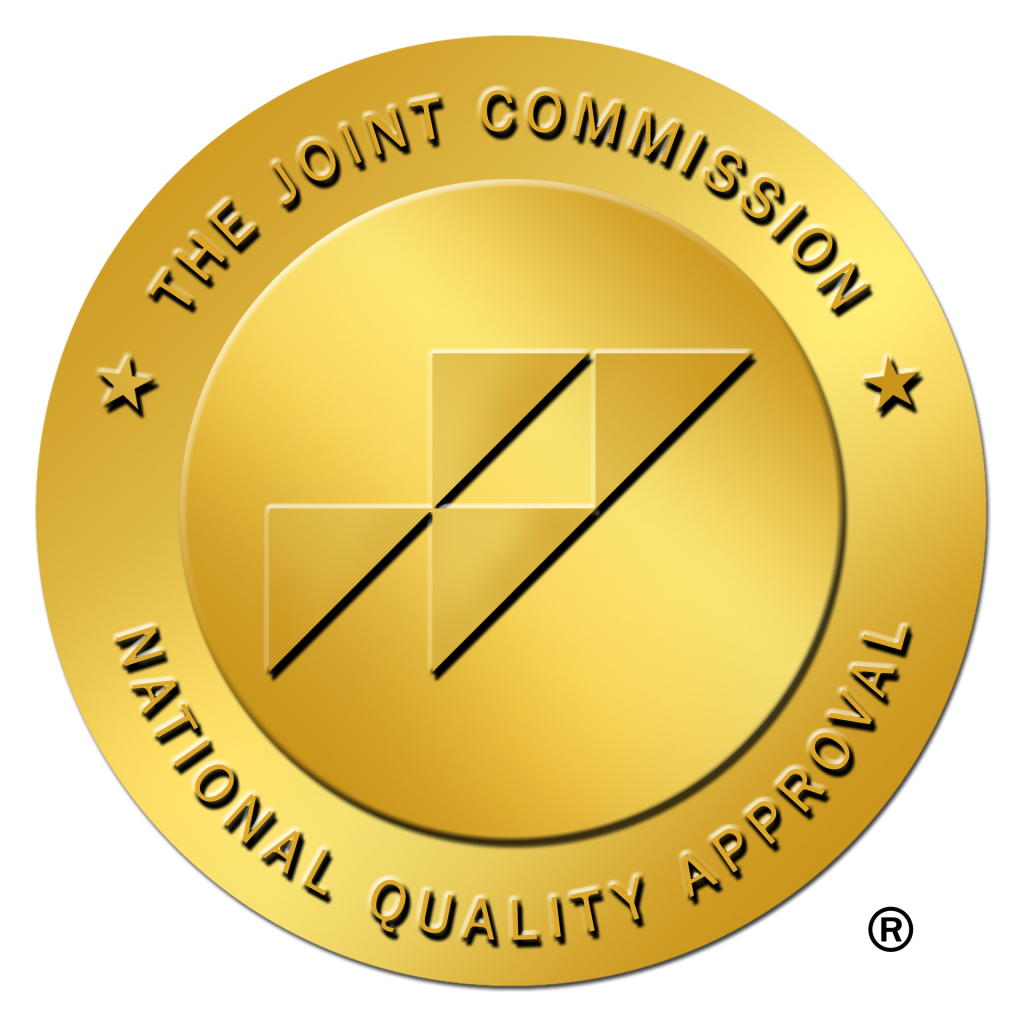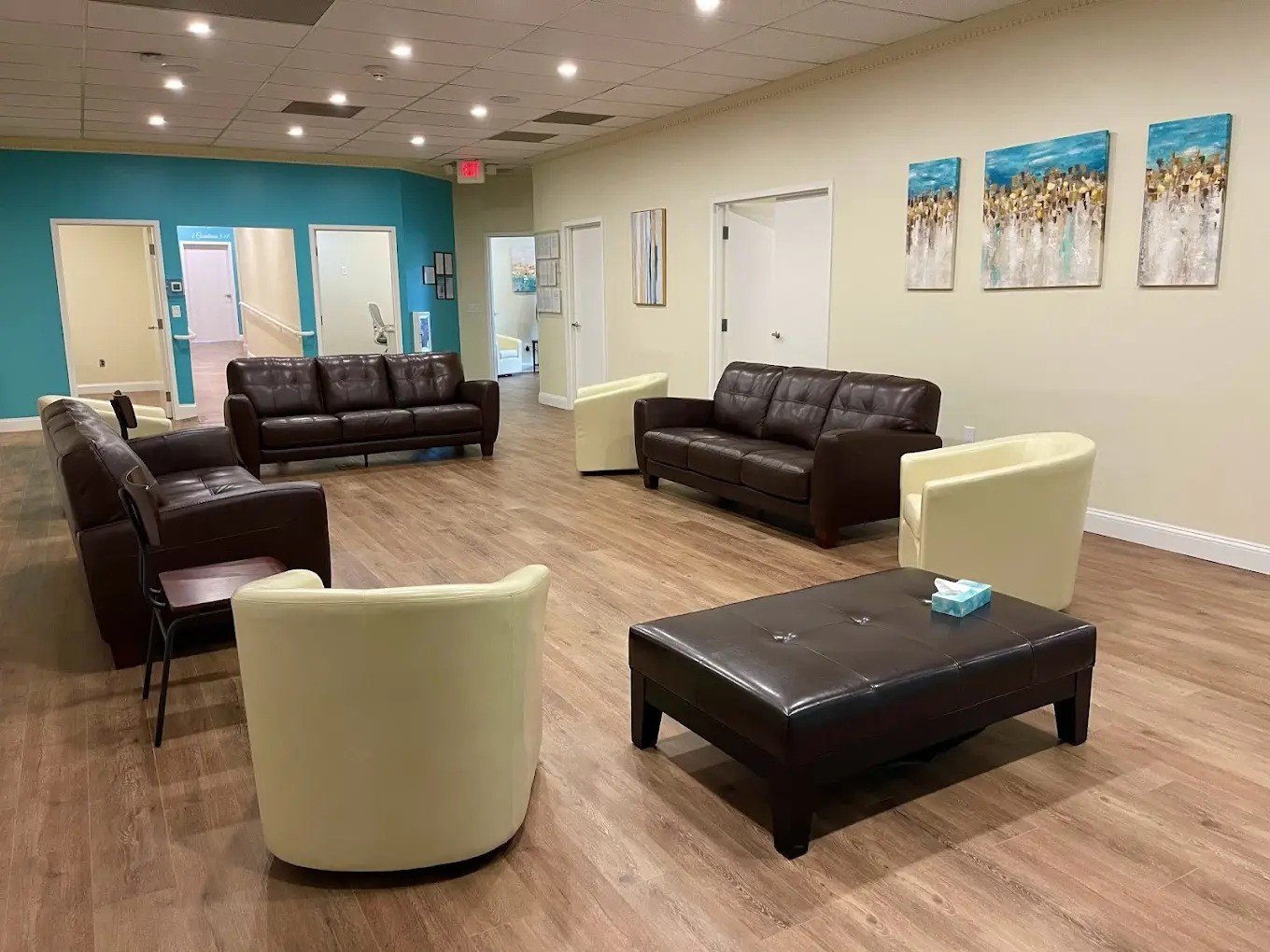Local Outpatient Rehab Centers
Our Vision for Outpatient Rehab
At New Chapter Recovery, we’re not just a facility; we’re a community dedicated to nurturing recovery. Our outpatient programs in Parsippany-Troy Hills, New Jersey, focus on empowering individuals to rebuild their lives while maintaining key aspects of daily living. Through innovative approaches, we aim to provide an environment where healing is possible without the confines of traditional inpatient settings.
Our commitment to outpatient rehab is rooted in a deep understanding of the challenges faced by those seeking treatment. We recognize the importance of a supportive community and structured flexibility to foster real, lasting change. Our approach is designed to meet the needs of busy professionals, veterans, and individuals who might otherwise find it difficult to engage in full-time residential programs.
Tailored Approach to Treatment
Every journey to recovery is unique, and at New Chapter Recovery, we tailor our programs to address the specific needs of each client. Our multidisciplinary clinical team collaborates to design personalized treatment plans that incorporate a variety of therapeutic modalities. From Cognitive Behavioral Therapy (CBT) to mindfulness practices, we ensure that each client receives the most effective care.
Our individualized counseling sessions allow clients to explore the root causes of their substance use disorders, while our group therapies foster camaraderie and peer support. We incorporate evidence-based practices to address both addiction and any co-occurring mental health conditions, ensuring a comprehensive treatment experience.
Comprehensive Programs
Partial Hospitalization Program (PHP)
Our PHP offers structured treatment during the day with the flexibility of returning home in the evening. This program is ideal for individuals who need intensive care without the need for overnight stays. Patients in PHP benefit from a blend of therapies that focus on stabilizing their mental health and substance use challenges.
Intensive Outpatient Program (IOP)
The IOP at New Chapter Recovery is designed for those balancing work, school, or family responsibilities. With flexible scheduling and a robust support structure, clients can attend therapy sessions that fit their everyday lives, making recovery more accessible and sustainable.
Outpatient Program (OP)
Our OP serves as a step-down care option, focusing on long-term relapse prevention. This program assists clients in maintaining their sobriety by providing ongoing support and counseling, ensuring they can continue with a fulfilling and productive life post-rehabilitation.
Integrated Dual Diagnosis Model
Addiction rarely exists in isolation; it’s often intertwined with other mental health issues. Our integrated dual diagnosis model addresses both addiction and mental health diagnoses concurrently. This comprehensive approach allows clients to heal holistically, addressing underlying issues that may contribute to substance use.
Our team is trained to deal with a wide range of co-occurring conditions, employing trauma-informed clinical practices that promote safety and empowerment. By treating the whole person, we lay a foundation for sustainable recovery and improved overall well-being.
Specialty Therapy Tracks
New Chapter Recovery offers a variety of specialty therapy tracks geared toward specific populations. Our animal-assisted therapy provides unique opportunities for connection and emotional healing, leveraging the therapeutic power of human-animal interactions. For veterans, we offer targeted programs that address experiences common to military life, using therapies that resonate with their unique backgrounds.
Additionally, our faith-based recovery track integrates spiritual beliefs into the therapeutic process, providing a path for those who find strength and guidance through faith. These specialty tracks demonstrate our commitment to meeting clients where they are, honoring their personal histories and preferences in their healing journey.
Community and Family Support
Recovery extends beyond the individual; it impacts families and communities. At New Chapter Recovery, we emphasize the importance of family involvement in the treatment process. By offering family support groups and educational sessions, we help families understand the dynamics of addiction and recovery, fostering an environment where healing can flourish.
Our role doesn’t end with treatment. We assist in building support networks that sustain recovery efforts, encouraging community reintegration and helping clients maintain their engagement in vital relationships. Our coordinated aftercare planning ensures clients are not left to navigate their new lives in isolation.
Admissions and Insurance Verification
We understand that seeking help can be daunting. That’s why our admissions team is dedicated to providing fast, confidential assessments and same-day admissions when possible. We prioritize making the process as seamless as possible, removing barriers to treatment so clients can focus on their recovery journey.
Our insurance verification team works with clients to expedite out-of-network and Tricare benefit checks. By handling these logistics efficiently, we ensure our clients can access the care they need without unnecessary delay, offering peace of mind to families and clients alike.
Therapeutic Modalities and Measurable Outcomes
Our aim is not only to provide treatment but to measure success through tangible outcomes. Each client’s progress is tracked with individualized goal setting, enabling us to adapt our approaches as necessary. Whether through Dialectical Behavior Therapy (DBT), Acceptance and Commitment Therapy (ACT), or Motivational Interviewing, our therapeutic modalities are diverse and dynamic.
The integration of experiential therapies and evidence-based practices underscores our commitment to quality care. By continually assessing outcomes, we strive to ensure that each step taken is toward a sustainable, rewarding life free from addiction.
The Role of Outpatient Care in Recovery
Outpatient care plays a critical role in the continuum of addiction treatment, offering a flexible yet structured environment conducive to recovery. By allowing individuals to maintain their everyday responsibilities, our local outpatient rehab centers reduce the disruptions that often accompany traditional inpatient programs. This model empowers clients to incorporate new coping mechanisms into their daily routines, promoting a more seamless transition to a life of sobriety.
The significance of outpatient care is particularly notable for those with professional obligations or familial responsibilities. As part of our commitment to accessible healthcare, we ensure our programs accommodate these needs, providing an inclusive environment where recovery can thrive.
Certainly! Here is a set of questions and answers that address common concerns, misconceptions, and advanced insights about our outpatient rehab center, New Chapter Recovery.
What makes outpatient rehab a viable alternative to inpatient treatment?
Outpatient rehab offers flexibility and allows individuals to maintain their commitments to work, school, or family while receiving the treatment they need. At New Chapter Recovery, we emphasize the importance of incorporating treatment into daily life, which helps individuals practice new skills in real-world settings. This can lead to more sustainable recovery as clients apply what they’ve learned immediately, integrating it into their routines. Real-life application of skills is a significant advantage of outpatient care, promoting a seamless transition to sobriety while minimizing disruptions.
Have you considered how maintaining daily routines might enhance your recovery journey?
How does New Chapter Recovery tailor its treatment plans to individual needs?
We believe that each person’s journey to recovery is unique, requiring a personalized approach. Our multidisciplinary clinical team collaborates to create individualized treatment plans that address specific needs, incorporating diverse therapeutic modalities like CBT, DBT, and motivational interviewing. This ensures that therapy is relevant and effective for each client. For example, a working professional may benefit from our flexible Intensive Outpatient Program, which can be scheduled around their job commitments.
What specific needs or circumstances do you think should be considered in a treatment plan?
Why is it essential to address both addiction and mental health issues together?
Addressing addiction without considering co-occurring mental health issues often results in incomplete care. Our integrated dual diagnosis model allows us to tackle both aspects simultaneously, offering a holistic approach to healing. This is crucial because untreated mental health conditions can exacerbate substance use disorders, forming a cycle that’s difficult to break. By treating both, we lay a strongest foundation for lasting recovery. For instance, a client with anxiety might learn coping strategies through therapy that can reduce their reliance on substances.
Have you encountered situations where addressing just one part of a problem wasn’t enough for lasting change?
What are some common misconceptions about outpatient rehab, and how does New Chapter Recovery address these?
A common misconception is that outpatient rehab isn’t as effective as inpatient care. In reality, the effectiveness largely depends on the individual’s needs, circumstances, and the quality of care they receive. At New Chapter Recovery, we provide evidence-based treatment that parallels the intensity of inpatient programs, without requiring full-time residency. Another misconception is that rehab is a “one-size-fits-all” solution. Our tailored, flexible programs debunk this myth by adapting to each client’s unique life situation and challenges.
Have you heard any misconceptions about rehab that you’ve found to be false through personal experience or learning?
How does family involvement contribute to successful recovery in an outpatient setting?
Family support is pivotal in recovery, offering emotional backing and motivation. At New Chapter Recovery, we foster family involvement through support groups and educational sessions, helping families understand addiction’s impact and recovery dynamics. By equipping families with this knowledge, they become a supportive pillar in the individual’s journey, helping to reduce relapse risks and enhance the recovery experience. Having a supportive home environment often translates to more successful long-term outcomes.
In what ways do you think family dynamics can impact someone’s recovery journey?
How does New Chapter Recovery facilitate community reintegration post-rehabilitation?
Community reintegration is a crucial aspect of recovery. We prioritize coordinated aftercare planning, ensuring clients are equipped with the resources needed to navigate life post-rehabilitation. This includes ongoing counseling, support networks, and encouragement to engage in community activities that foster a sense of belonging and purpose. Our goal is to smooth the transition back to everyday life while maintaining the progress made during treatment.
What community activities or support systems do you think could benefit someone in recovery?
Resources
- Substance Abuse and Mental Health Services Administration (SAMHSA) – SAMHSA is the leading agency in the U.S. working to improve the quality and availability of substance abuse prevention, addiction treatment, and mental health services.
- American Psychiatric Association – The American Psychiatric Association is a professional organization of psychiatrists that works to ensure humane care and effective treatment for all persons with mental disorders.
- National Institutes of Health (NIH) – NIH is the largest biomedical research agency in the world, conducting research in its own laboratories and supporting research in universities, medical schools, hospitals, and research institutions.
- National Alliance on Mental Illness (NAMI) – NAMI is the nation’s largest grassroots mental health organization dedicated to building better lives for the millions of Americans affected by mental illness.
- Centers for Disease Control and Prevention (CDC) – Mental Health – The CDC provides extensive information on mental health, including data and statistics, resources for mental health concerns, and strategies for promoting mental health.






